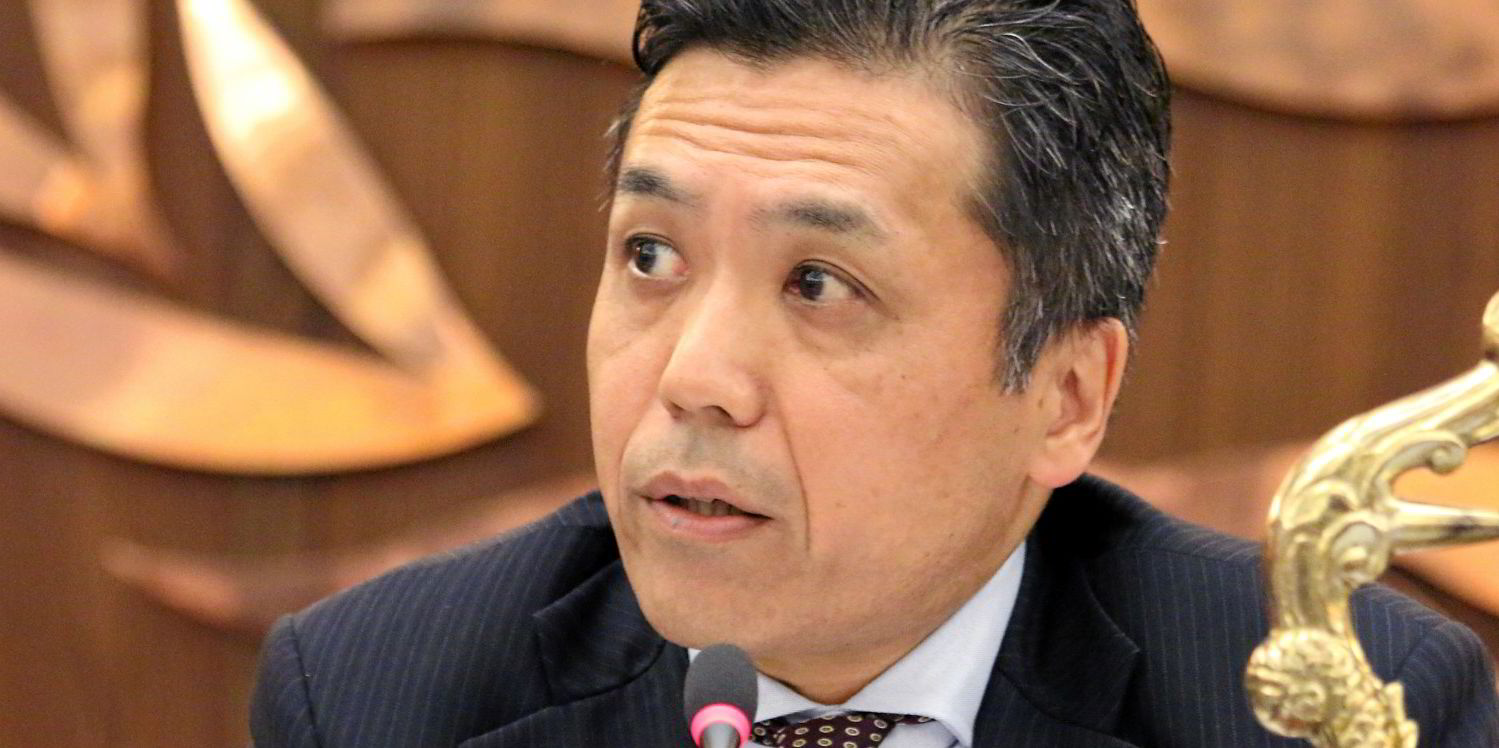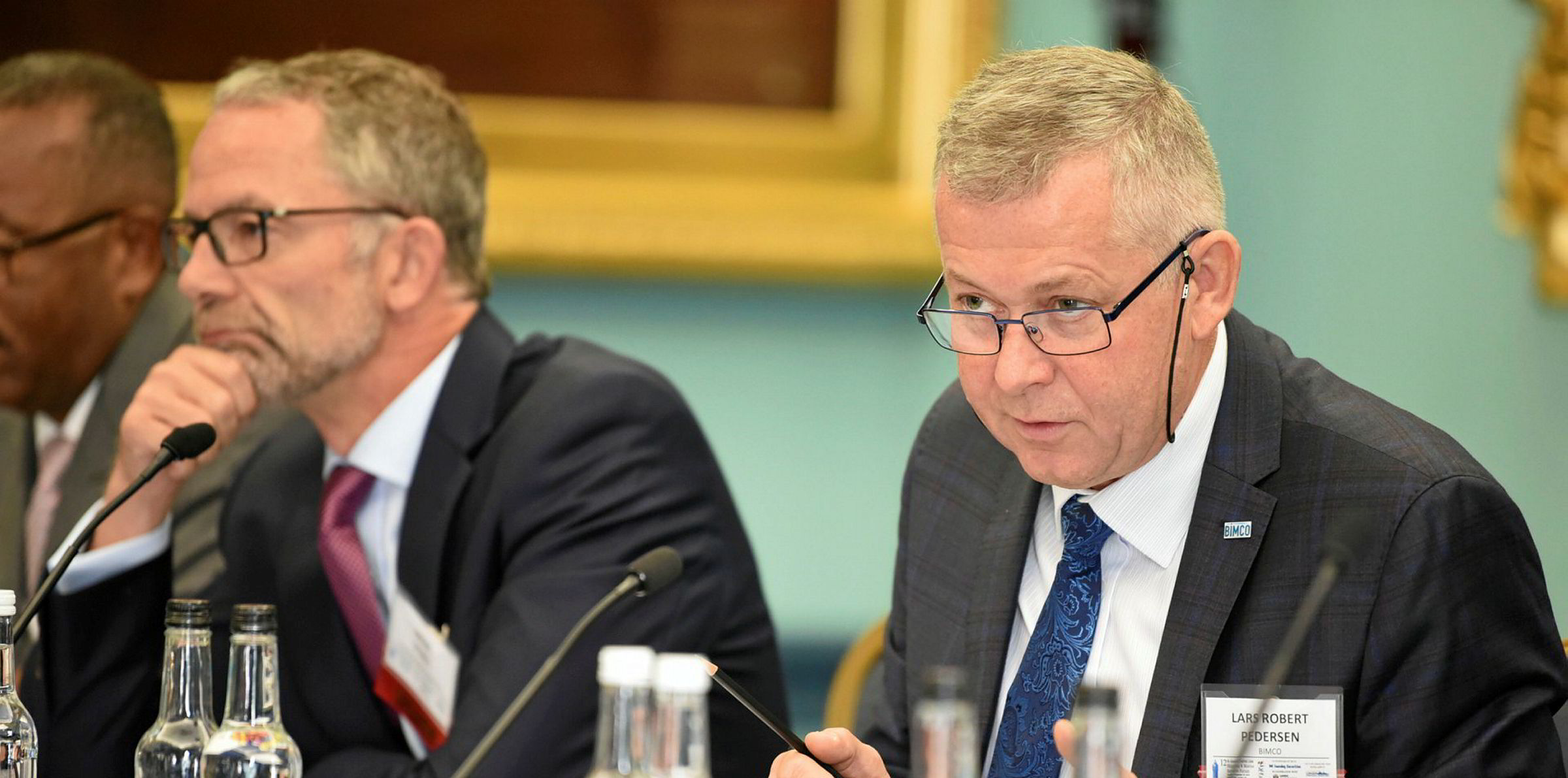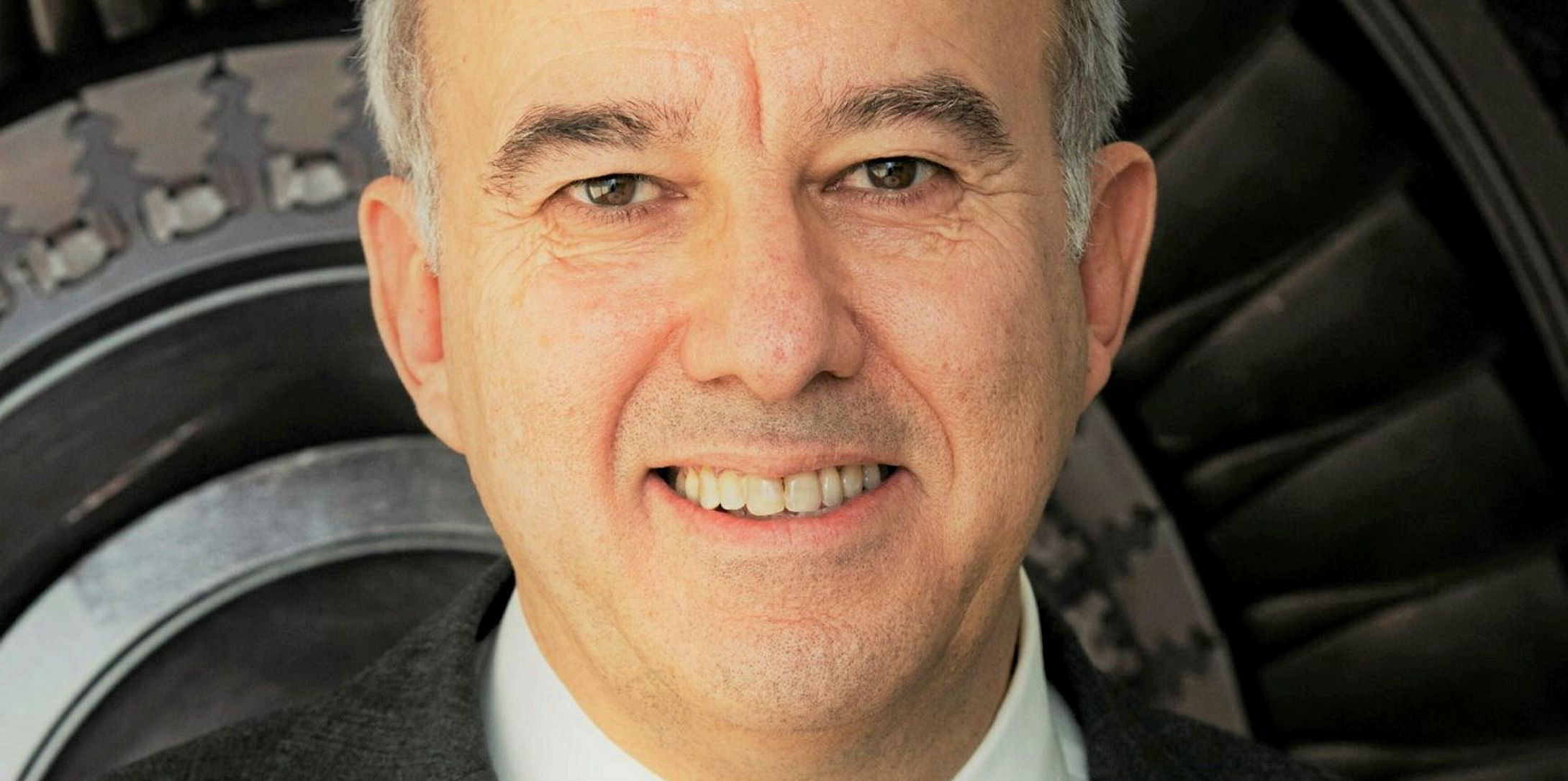The International Maritime Organization is facing pressure to adopt a series of controversial measures to reduce greenhouse gas (GHG) emissions from ships at an environmental meeting next week.
Environmentalist and some shipping associations have criticised the measures that will be put before the virtual Marine Environment Protection Committee meeting for not going far enough to curb global warming.
But influential IMO member states are asking delegates to consider the measures “with a view to approval” for addition to the International Convention for the Prevention of Pollution from Ships (Marpol)’s Annex VI.
IMO secretary general Kitack Lim has already strongly backed the measures and is expected to recommend adoption.
The key change will be the addition of a new regulation, 20A. It will establish an Energy Efficiency Existing Ship Index (EEXI) for ships and will require existing vessels to match the energy efficiency standards of newbuildings, which are set in the Energy Efficiency Design Index.
Another new regulation — 22A — will establish a carbon intensity indicator (CII) to improve the operational fuel efficiency of ships, relative to cargo carried. The efficiency standard will be set at a level to achieve the IMO’s goal of a 40% decline in shipping’s carbon intensity by 2030.
Ships rated D or E in the CII over three years will be required to improve.
Influential nations
As TradeWinds has reported, the measures have the support of 19 key shipping nations, including Japan, China, Singapore, Spain, Denmark, France, Norway, the Bahamas and others.
There is strong pressure from the backers of the proposals to get the Annex VI amendments approved at this meeting so that they can enter into force from 2023.
Once approved, the IMO will establish a committee to develop the technical guidelines to support the measures.
Pressure on delegates to give their backing will mount as the IMO tables its greenhouse gas study, which shows shipping’s carbon emissions are not improving and quick action is required.
Tougher measures

But pressure for even tougher measures is being applied by environmental groups Pacific Environment and the Clean Shipping Coalition.
Those two bodies have submitted a study showing that gains from the proposed IMO measures have already been achieved by slow steaming since 2008. The environmental groups claim much stronger additional measures are required.
Developing countries could oppose and potentially block the EEXI and CII measures being adopted because they believe their economic growth may be compromised.
Some nations that have been impacted by climate change feel the measures do not go far enough.
The IMO meeting will also set up an impact assessment of the measures to allay the fears of the potential economic effect.
Another issue that could send IMO delegates back to the drawing board is the lack of penalties for ships that fall short of the carbon index standards. Many European states are said to be unhappy with the lack of more forceful measures.
The other critical worry is over safety, particularly in the power limitation of main engines, which many shipowners may be forced to adopt to achieve the EEXI and CII standards.
Japan, Germany, Norway and Spain have proposed a solution that would allow ships a power reserve, within their power limitation, for safety.
Zero emissions
In a separate development, the International Chamber of Shipping, Bimco, Intertanko, Intercargo and others have also submitted a proposal for the establishment of an International Maritime Research Development Board to progress technical research and development on zero-emissions ships. The body would be funded through a $500-a-year fund collected from shipowners.
The IMO is also ready to discuss the problem of methane emissions from ships resulting from the increased use of LNG as a fuel.
Many IMO delegates are largely supportive of the expanded use of LNG to power ships.]
However, Greenpeace, the WWF and other environmental groups have submitted papers to the IMO meeting arguing that the growth of methane emissions from LNG when used as a marine fuel oil is adding to global warming.







